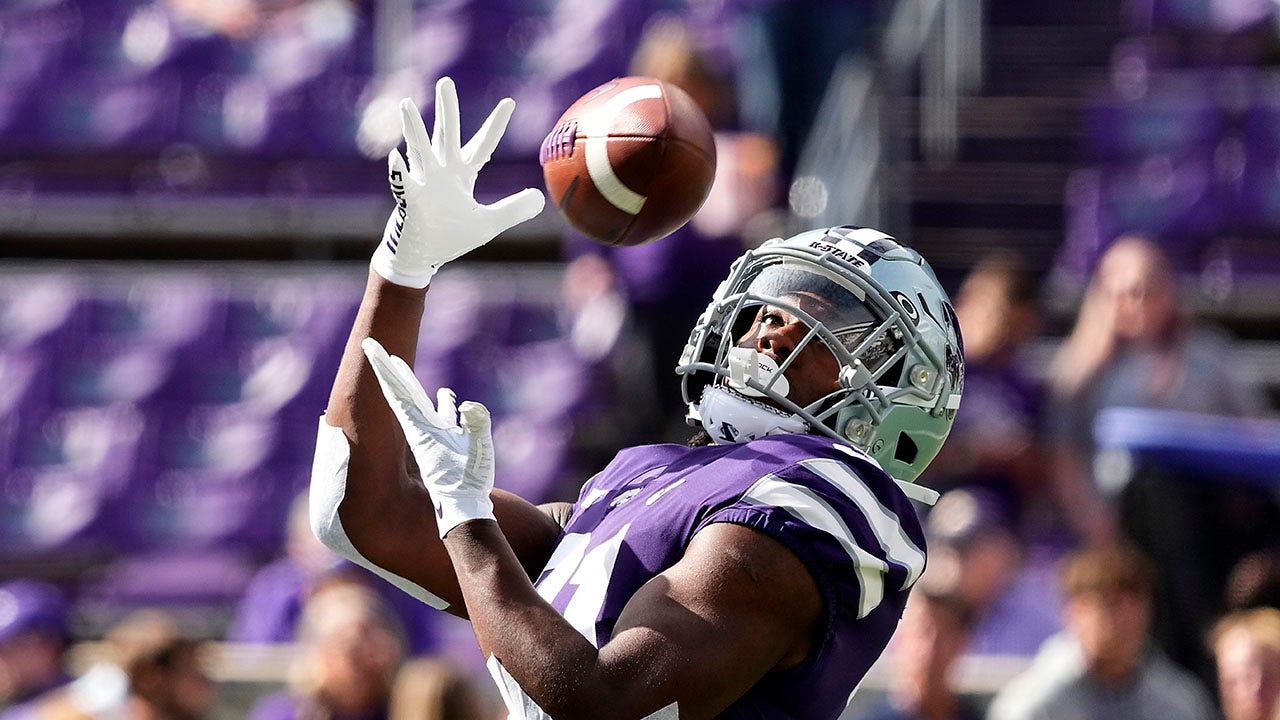The Volleyballer Smashing Taboo around Periods
LockerRoom Series
After an impressive US college volleyball career, Agatha Gibbons is doing world-first research in Hamilton to help Pacific female athletes understand menstruation and avoid RED-S – to open our series on Pacific sportswomen giving back.
It wasn’t until Agatha Gibbons began to study the effects of RED-S that she realised she’d actually been a victim of the cruel medical syndrome.
Gibbons had been playing volleyball at a US college in New Mexico, which she quickly discovered was a far cry from her Fijian homeland.
She was shocked when girls on her team spoke openly about their periods and shared concerns about their menstrual cycle with their coaches, some of them male.
She’d had no idea that she wasn’t eating enough – or the right food – to refuel for all the energy she was expending as an athlete. And that her diet had been a factor in the ACL tear she suffered in her sophomore year, which kept her sidelined for nine months.
But when Gibbons was studying for her Master of science in health and physical education, and writing a paper on the female athlete triad, she put two and two together.
“I realised I trained so hard, but my nutrition was so bad, I missed some [periods]. And it also contributed to me getting hurt,” she says.
“I realised wow, that whole time, I didn’t have much knowledge about all of that. If I’d learned about it at high school, I would have had a much better idea how to eat properly.”
Now Gibbons wants to help young Pacific female athletes understand the importance of good nutrition from an early age. She’s doing her PhD at the University of Waikato, researching Pacific sportswomen’s experiences and knowledge of menstruation – the first time this area has been explored.
It’s a topic that’s been silenced for decades – through cultural and religious beliefs, and a lack of knowledge. And Gibbons wants to hear more about why.
What happened along the way?
Gibbons is conducting a survey on women both in New Zealand and in the Pacific Islands to better understand how Pacific sportswomen navigate through issues of female athlete health. So far, she’s heard from more than 170 athletes, and interviewed 11 in Fiji, while waiting for the New Zealand borders to reopen.
The survey asks about women their menstrual health and how it effects their athletic performance, the history of their periods, and taboos surrounding menstruation.
“I found out some of the sportswomen were so ashamed and embarrassed to talk about their period when they got it for the first time. One hid it from her mother because she was so scared,” Gibbons says.
“In Fiji, mothers and aunties don’t encourage girls to use tampons, which is another cultural thing. So, everyone uses sanitary pads. And that goes for me too, I wasn’t encouraged to use tampons until I went to the US.”
Another Fijian athlete Gibbons interviewed said her grandparents had told her a girl’s first menstrual cycle had been “a celebration” back in their day.
“But they don’t know what happened along the way,” Gibbons says. “You’d think Westernisation would make it a topic easier to talk about. But instead, it became a taboo topic.”
Professor Holly Thorpe, who’s chief supervisor of Gibbons’ PhD research, calls the work a world first.
“Over recent years we’ve seen a boom in sport science research focused on female athlete health, particularly menstrual health. While it’s great to see, most of this research has been conducted by white women using all white samples of athletes, but then the findings are being generalised for all sportswomen,” she says.
“Agatha’s research is ground-breaking in that she’s prioritising Pacific women’s knowledge about menstruation in sport. She’s bringing sport science together with Pacific methodologies to work at this critical intersection.”
Thorpe hopes Gibbon’s research will pave a pathway for more indigenous and Pacific sport science researchers to “navigate space for cultural ways of knowing” in the otherwise very Western and scientised fields of sports science and sport medicine.
“With this knowledge, sports organisations can find new strategies to support their Pacific sportswomen in ways that align with their cultures, rather than expecting them to leave culture at the door when they enter the elite sport environment,” Thorpe says.
Breaking taboo
Gibbons grew up in Suva, where she went to primary and high school and played a lot of sport. In her senior year, she took up the offer of a full ride volleyball scholarship in the US.
“It was a complete culture shock,” she says. “I’d never left the country, never left my parents, and I went to live in the New Mexico Military Institute in Roswell, famous for aliens. I went from living by the ocean to living in a desert.”
But it didn’t put her off her game. Her 1.85m height and strength made her an excellent middle blocker. She won female athlete of the year at NMMI and made All-Conference teams both there and when she transferred to NCAA college Eastern New Mexico, where she made over 100 blocks.
For seven years playing and coaching in the collegiate system, Gibbons worked hard to be the best – but it would come at a cost.
“As a kid in the islands, you play sport for fun and no-one takes it too seriously, until you reach a certain level and then they talk about diet. But they don’t talk about women’s health, or the effects of your nutrition,” she says.
“There’s nothing in the school curriculum about it in Fiji. When I found out about female athlete triad, I’d never heard about it in my life.”
In 1992, the American College of Sports Medicine created the term ‘female athlete triad’ for the interrelationship between bone mineral loss, disordered eating and loss of menstruation in women athletes. In 2014, the International Olympic Committee renamed it RED-S – or Relative Energy Deficiency in Sport.
It’s a syndrome that, worryingly, is affecting more and more female athletes.
Once she was at college, Gibbons was amazed the topic of menstruation was talked about openly. “When my team-mates would have a discussion about it, it was so weird to me. They’d say: ‘I think I’m late’, and they’d discuss it with the head coach and she might refer them to a doctor,” she says.
“I realised back at home we don’t have those kinds of discussions; we never talk about menstrual health – especially with male coaches. In the US, athletes go from high school to college, they eat healthy and train hard and do everything by the book. But we don’t have that.
“So I started to learn about it slowly.”
While she was undergoing rehab following her knee surgery, the athletic trainer pushed the importance of nutrition on Gibbons. “It was my second year and I was still trying to figure myself out. So I said I would eat healthier,” she says.
But it wasn’t always simple. “On summer breaks we’d be given nutrition plans, but I never followed them, because when I went home, I couldn’t get the foods they had in those plans… We don’t have broccoli in Fiji.”
Taking the lessons back home
Gibbons did her bachelor’s degree in criminal justice, and wanted to become a detective. But then she switched to sports health for her Masters, and came across the paper on the female athlete triad, or RED-S.
“I wanted to find data for my paper but I discovered there wasn’t much research about Pacific sportswomen. I was shocked and so frustrated. I had to take research from other parts of the world,” she says. “I also realised how a lot of the articles didn’t take culture into consideration.”
Now onto her doctorate, Gibbons’ three-year research project is co-funded by the University of Waikato and Orreco, a Silicon Valley sports science and research company, which has a focus on female athlete research. There’s also support from High Performance Sport NZ.
“When I’m done, I want to go back home, and go back to grassroots, running workshops for coaches and athletes on the importance of female athlete health,” Gibbons says. “I’d like it to be taught in Pacific Island schools, so girls can understand the importance of nutrition and menstrual health.”
Thorpe, who’s recognised as a world leader in female athlete health, says Gibbons has a strong team of sports scientists and Pacific research experts supporting her, including Professor Keakaokawai Verner Hemi, Assistant Vice Chancellor Pacific at the University of Waikato, and HSPNZ director of performance health, Dr Bruce Hamilton.
“This collaboration of sports science and cultural knowledge is the cutting edge of sports research, and it’s so important for this project to be led by a Pacific athlete and researcher, with and for Pacific sportswomen,” Thorpe says. “I can’t think of a better person to be leading this project, and I know Agatha is going to do amazing things with this research.”
Gibbons, meanwhile, is on the mend following a car accident, putting on hold her plans to get back onto the volleyball court this summer.
She’s hoping to finally get the chance to play for Fiji Kulawai, the national volleyball team. She’s always had to turn down invitations because of her college career.
“The Pacific Games are coming up in the Solomons next year, and I’d like to give it a go,” she says. “I could go and interview sportswomen there too. All the sporting organisations I contacted in different island nations agreed it was a really good topic and they’d never had researchers reach out to them before. It’s exciting.”





